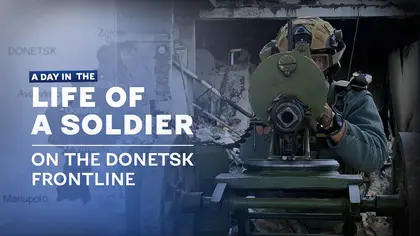Thousands of Ukrainians are now on the frontline facing the Russian invaders, existing in the most uncomfortable, basic conditions and waiting for the next battle. What does that mean for ordinary infantry soldier serving on the Donetsk front - one fighter, based near Vuhledar, tells us.
Hi! This is me, watching myself in the mirror in the basement which is my temporary home.
JOIN US ON TELEGRAM
Follow our coverage of the war on the @Kyivpost_official.
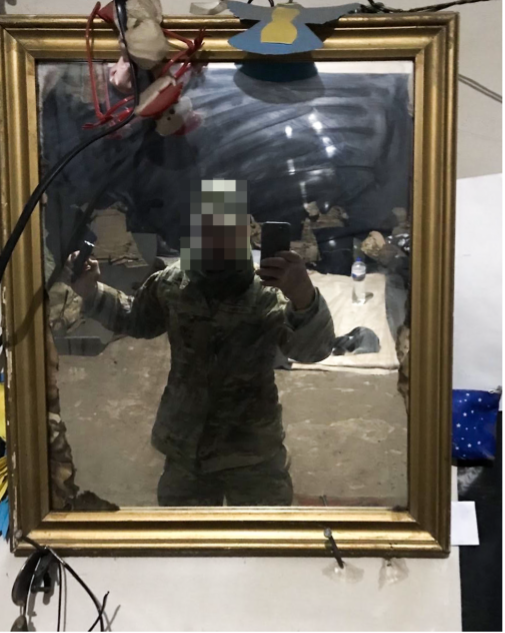
Photo credit: The soldier on Donetsk frontline.
I have been serving since the start of the full-scale invasion. I participated in the defense of Kyiv and on the northern border. I always wondered what it was like to be an infantryman on the frontline – now I know. I'm officially a liaison officer, but no one here has a radio, so my primary job now is to man the machine gun.
Our base is the basement of an abandoned house a short distance from the front line. We have a Starlink internet connection and scraps of furniture we have gathered for sleeping and dining.
We sleep wherever we can find a warm space. This is usually in a dugout or casemate, sometimes with ten or other times as many as two hundred of is in a room. When there are many of us in the room it doesn’t smell so good, but we’ve got used to it. When the weather gets warmer, we sleep outside. That’s where I am sleeping now.
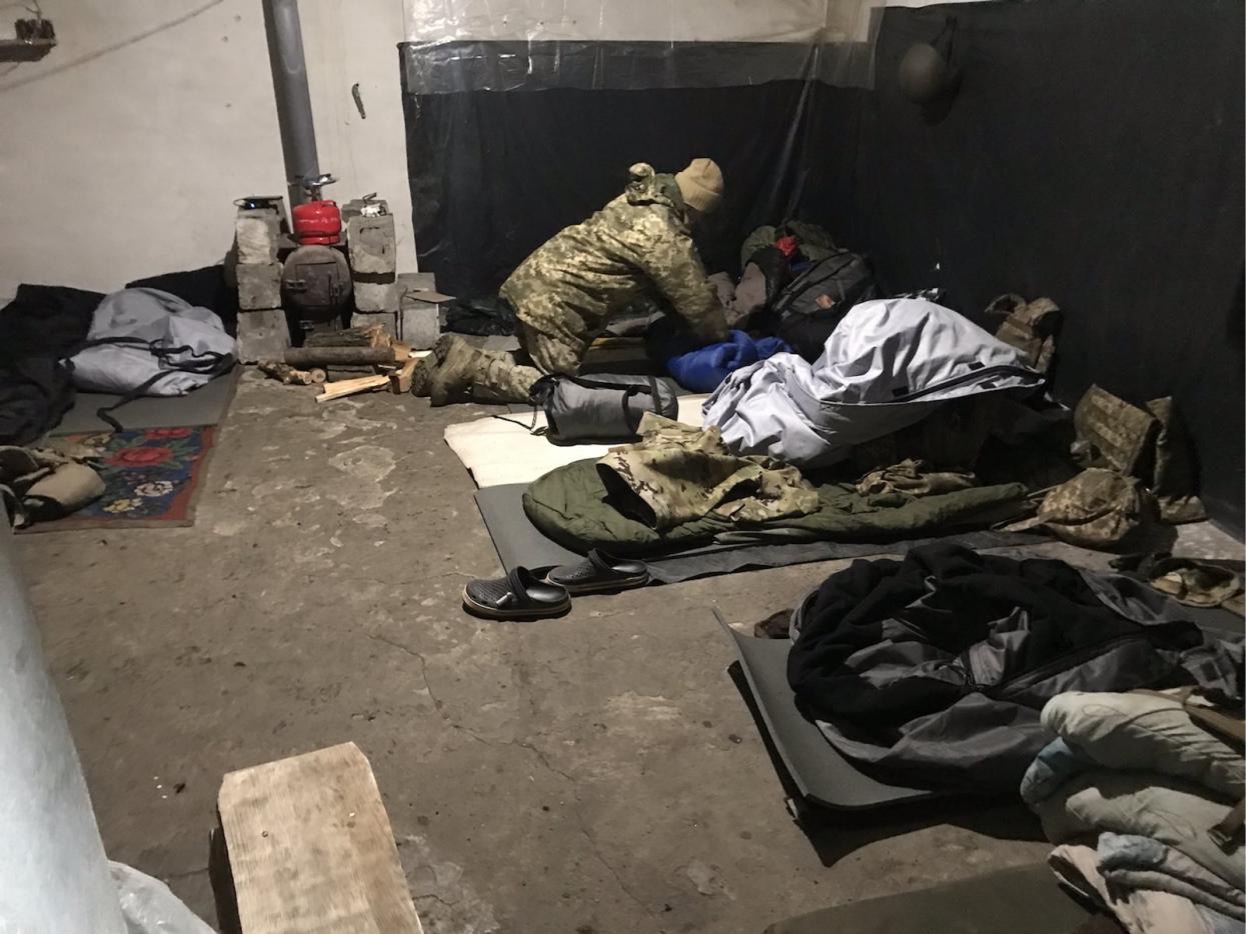
Soldier’s sleeping area
Photo credit: the soldier on the Donetsk frontline.

EU Transfers €1.5 Bln Raised From Russian Assets for Ukraine
We normally get up at seven, unless we’ve been on the night shift when it can be later; but usually everyone is up by nine. Then we’ll hold a minute of silence to remember our fallen comrades. Brushing your teeth or washing your face in the morning is impossible. I take a dry shower - wet wipes. If you want a bath, you need to make an arrangement with the locals, because there is a shortage of water supply.
Breakfast is usually something with toast.
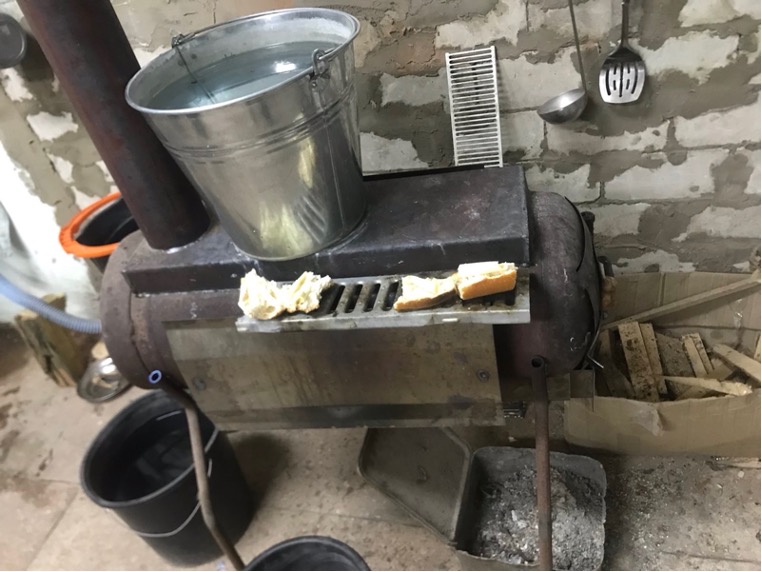
Our toaster
Photo credit: the soldier on the frontline.
There is no inside toilet here, so we go outside - of course, there is no toilet paper. It’s really annoying that, sometimes when you’re doing your “business” and have taken off your trousers, an enemy drone appears out of nowhere overhead. Don’t need that to appear on Telegram!
We work shifts in the trenches, rotating every few hours. We serve for 2-3 weeks in the trenches, then have a week off to rest and get some definitely needed sleep before returning to replace our colleagues.
We know how hard it is in the trenches, so after we’ve had our rest break, we rush back so that our mates get their turn on time.
Our routine in the base, after we’ve slept, is to charge our power banks, thermal imagers and radios – so we are then ready for the fight. The day’s timetable depends on how many of us are available and how much territory we have to protect and control.
Afterwards, we get ready to go to our fighting positions or do household chores. Lunch is at 1 p.m., then, if there’s no fighting, we rest until 4 p.m., then have dinner. However, in any case, we’re ready if called upon to replace or reinforce our comrades.
Everyone's daily schedule differs depending on the area of the frontline they’re on and the intensity of the fighting. In the autumn, we even managed to pick mushrooms around our positions in between attacks. Sometimes, we talk about whether or not we should get a cow in the summer.
Here is a picture of my friend, the champion mushroom picker.
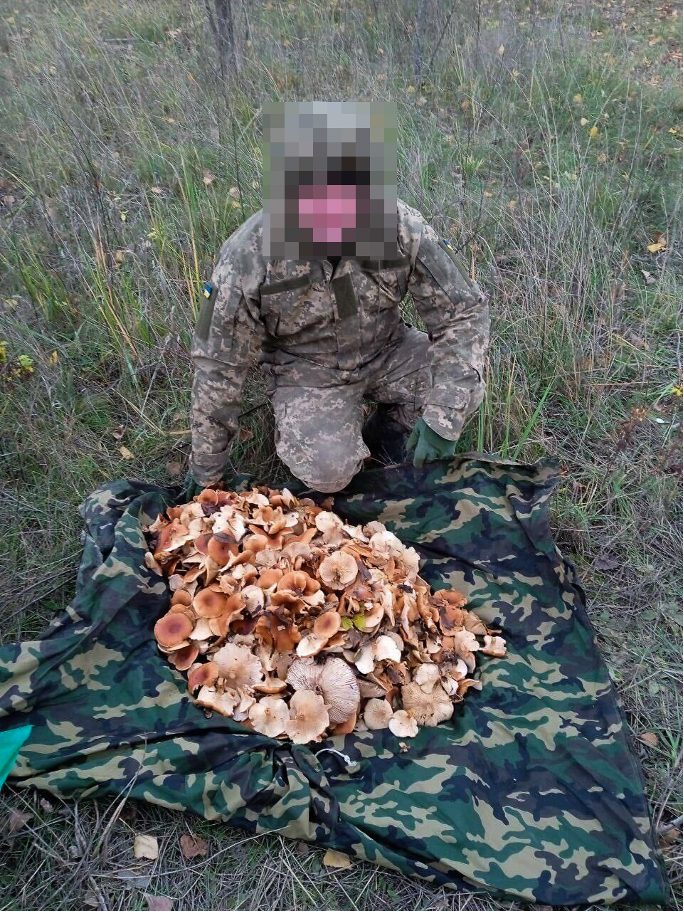
Ukrainian soldiers pick mushrooms - 400 meters from Russian positions, Donetsk region
Photo credit: AFU soldier.
More than a year into the war, a third of us are now conscripts who have only been in the army for three months or so. Most of them are not very good at shooting, we are trying to train them to get better, in the meantime they help on the frontline by bringing ammunition to us.
We prepare our food ourselves, on an open fire.
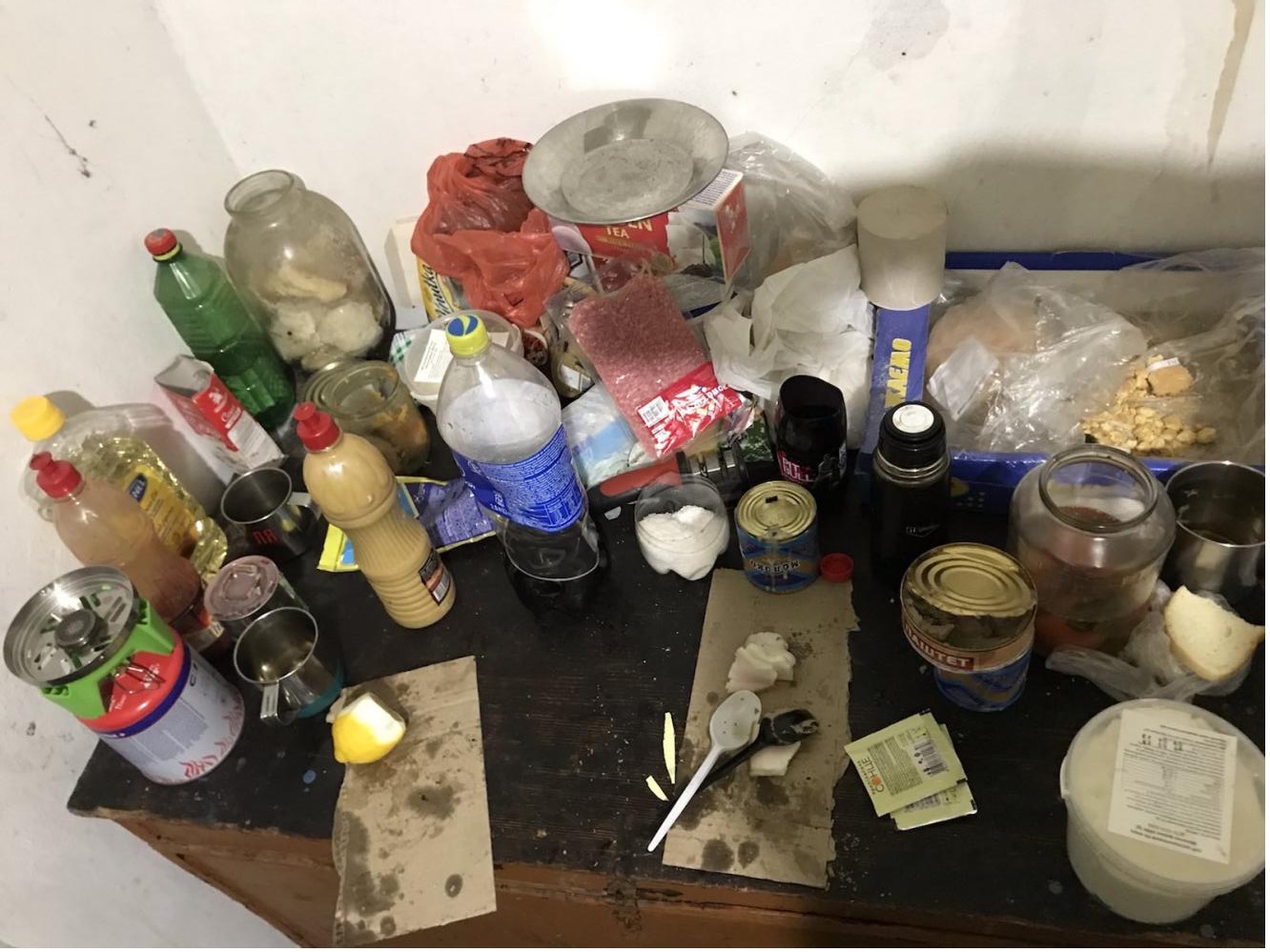
Our kitchen table.
Photo credited: the soldier on the Donetsk frontline.
The food supplied to us is all canned, so some of us scrounge or buy the odd chicken or vegetables from the locals. Our AFU salary for being on the front line is higher than normal, as it should be, because we are here living, fighting and dying in our trenches. We are loyal to each other, so the warnings from our commanders that the penalty for leaving our positions is seven years in prison, aren’t necessary.
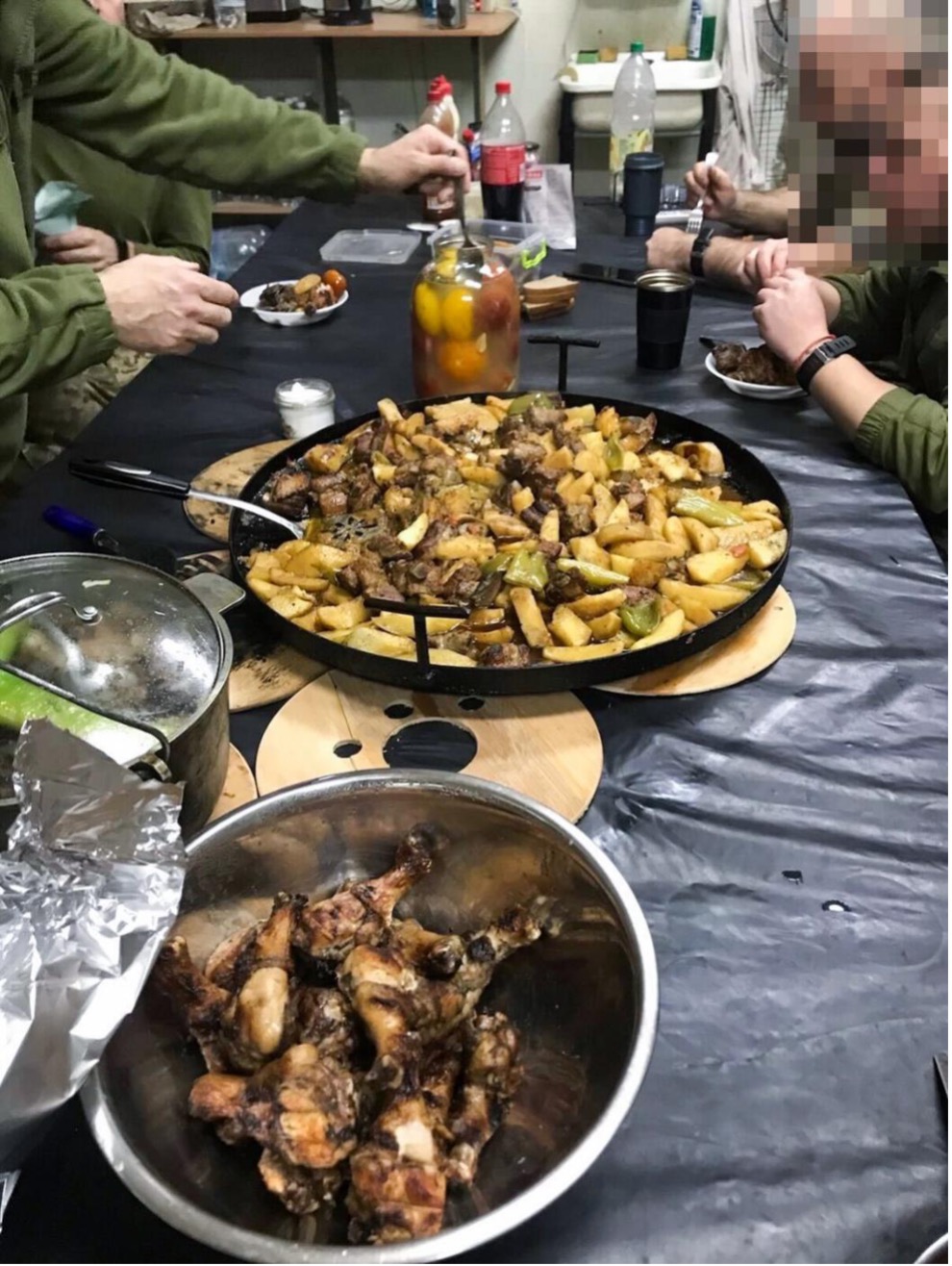
Dinner on the frontline
Photo credit: the soldier on the Donetsk frontline.
In the evening, everyone gets close to the Starlink system so we can get on-line and contact our loved ones. Sometimes we run competitions to see who can load cartridges into the machine gun belt the fastest. Some of our guys take alcohol because they are stressed.
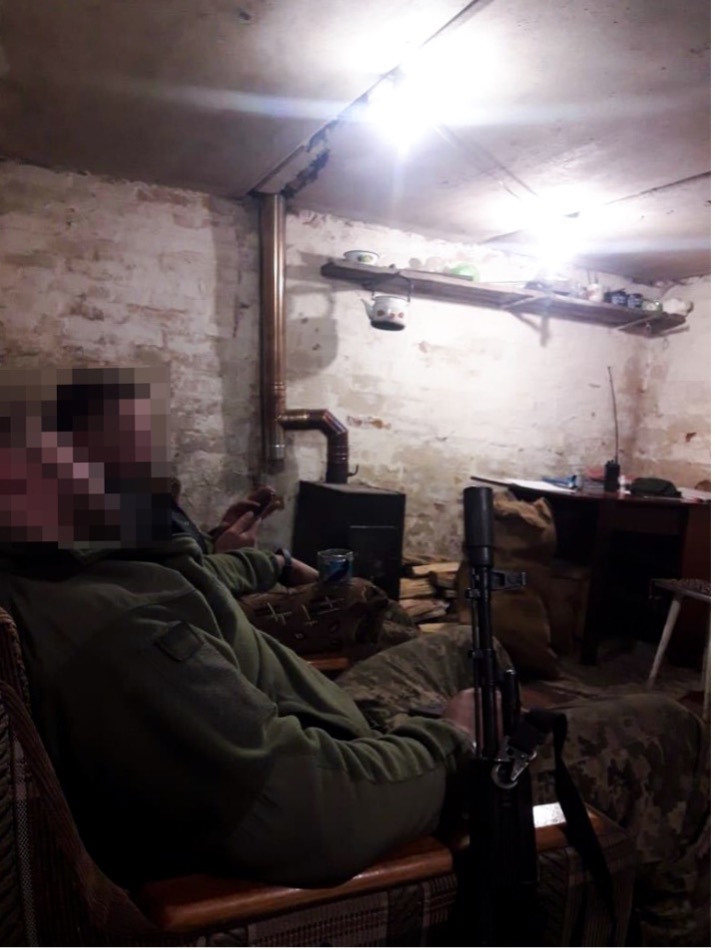
Soldiers at rest
Photo Credit: AFU soldier on the frontline in Donetsk region.
You can also highlight the text and press Ctrl + Enter


